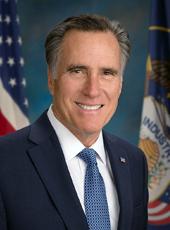"We've heard about the so-called Buffett rule, but what about the Obama rule? The Obama rule says that we must tax American families and small businesses so that government can grow. President Obama has made it clear that raising taxes is the one campaign promise he will keep. Mitt Romney wants to lower the tax rate so that more Americans can keep their hard-earned money and small businesses can begin to grow and hire. American families and small businesses have already suffered enough under the Obama rule." —Gail Gitcho, Romney Campaign Communications Director
Today, President Obama Will Deliver Remarks On The Latest Step In The Obama Rule, Which Emphasizes Tax Increases To Finance The Growth Of Government:
President Obama Will Deliver Remarks On The So-Called "Buffett Rule" In Florida To Help Raise Even More Money To Pay For His Federal Spending. "On Tuesday, Mr. Obama will make the case for the proposal at Florida Atlantic University in Boca Raton in the latest of his string of visits to a state that is a prime battleground for the election. While in Florida Mr. Obama will hold three fund-raisers, in Palm Beach, Hollywood and Golden Beach. He will be back in Florida on Friday, in Tampa, before heading to a summit meeting in Colombia." (Jackie Calmes, "Obama To Make Case For ‘Buffett Rule'," The New York Times, 4/10/12)
FLASHBACK: In September 2011, President Obama Claimed His "Buffett Rule" Could "Raise Enough Money" To Finance His Spending Priorities And "Stabilize Our Debt And Deficits." OBAMA: "What I've said is this is a very simple principle that everybody should understand: Warren Buffett's secretary shouldn't pay a lower [sic] tax rate than Warren Buffett. ... And that basic principle of fairness, if applied to our tax code, could raise enough money that not only do we pay for our jobs bill, but we also stabilize our debt and deficits for the next decade. And as I said when I made the announcement, this is not politics; this is math." (President Barack Obama, Remarks in San Diego, CA, 9/26/11)
President Obama's First Step In The Obama Rule Was Passing "The Largest Tax Increase Since 1993" To Pay For Obamacare:
Obamacare Contains "The Largest Tax Increase Since 1993." "Keep in mind that Mr. Obama has already signed the largest tax increase since 1993. While everyone focuses on the Bush tax rates that expire after 2012, other tax increases are already set to hit the economy thanks to the 2010 Affordable Care Act." (Editorial, "Taxes Upon Taxes Upon...," The Wall Street Journal, 7/11/11)
The Nonpartisan Congressional Budget Office Estimated That Obamacare Will Raise Taxes By $525 Billion Over Its First 10 Years. (CBO Director Douglas W. Elmendorf, Testimony, U.S. House Of Representatives, 3/30/11)
Even With Those Tax Increases, Obamacare's Massive Federal Spending Could Still Add Up To $530 Billion To The Federal Budget Deficit. "President Barack Obama's healthcare law could sharply exceed its cost-savings targets and add up to $530 billion to the federal budget deficit, a leading authority on U.S. government benefit programs said on Tuesday." (John Crawley, "Obama Healthcare Law Could Sharply Worsen U.S. Deficits: Study," Reuters, 4/10/12)
President Obama Doubled Down On The Obama Rule By Pushing For "One Of The Biggest Tax Increases In History" To Help Finance Future Government Spending:
President Obama "Is Setting Up The U.S. Economy For One Of The Biggest Tax Increases In History In 2013." "President Obama unveiled part two of his American Jobs Act on Monday, and it turns out to be another permanent increase in taxes to pay for more spending and another temporary tax cut. No surprise there. What might surprise Americans, however, is how the President is setting up the U.S. economy for one of the biggest tax increases in history in 2013." (Editorial, "The 2013 Tax Cliff," The Wall Street Journal, 9/14/11)
Obama White House Officials Have Signaled That President Obama Would Raise Taxes "Either As A Final Act In Office After Losing The November 2012 Election Or After Winning A Second Term." "A White House official argued Sunday that the president had another trump card to play: the scheduled expiration of the George W. Bush tax cuts at the end of 2012. Obama would block extension of the reductions, either as a final act in office after losing the November 2012 election or after winning a second term." (Peter Wallsten and David Nakamura, "Did Obama Capitulate — Or Is This A Cagey Move?" The Washington Post, 7/31/11)
President Obama's 2013 Budget Included A $1.5 Trillion Tax Increase. "The plan calls for a tax reform package that would increase revenue by $1.5 trillion over the next decade. Obama did not offer a detailed plan for tax reform. Instead, he proposed a series of changes to the current tax system and several principles for what comprehensive tax reform would look like." ("Obama Budget Sets Stage For Battle Over Tax Hikes," The Associated Press, 2/13/12)
President Obama's Massive Tax Hike Would Impact Nearly $500 Billion Of Business Income. "January 2013 is also the same month that Mr. Obama wants the Bush-era tax rates to expire on Americans earning more than $200,000. That would raise the highest individual income tax rate to about 42%, including deduction phaseouts, from 35% today. Congress's Joint Committee on Taxation found in 2009 that $437 billion of business income would be taxed at higher tax rates under the Obama plan. And since some 4.5 million small-business owners file their annual tax returns as subchapter S firms under the individual tax code, this tax increase would often apply to the same people who Mr. Obama is targeting with his new tax credits." (Editorial, "The 2013 Tax Cliff," The Wall Street Journal, 9/14/11)
Mitt Romney, Romney Campaign Press Release - What About the Obama Rule? Online by Gerhard Peters and John T. Woolley, The American Presidency Project https://www.presidency.ucsb.edu/node/301623

